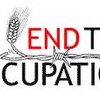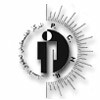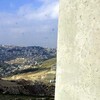
What does Sharon's latest settlement move mean for Israel?
6 February 2004
Israeli Prime Minister Ariel Sharon’s announcement that he plans to remove virtually all Israeli settlers from the occupied Gaza Strip has caused a shock wave in Israel. Has some sudden epiphany convinced Sharon that the settlements are the key obstacle to peace and that Israel’s future is jeopardized by the continued attempt to incorporate occupied Palestinian territories into a greater Israel? EI co-founder Ali Abunimah, and ADC Communications Director Hussein Ibish get to the bottom of the mystery in a Chicago Tribune commentary. Read more about What does Sharon's latest settlement move mean for Israel?








